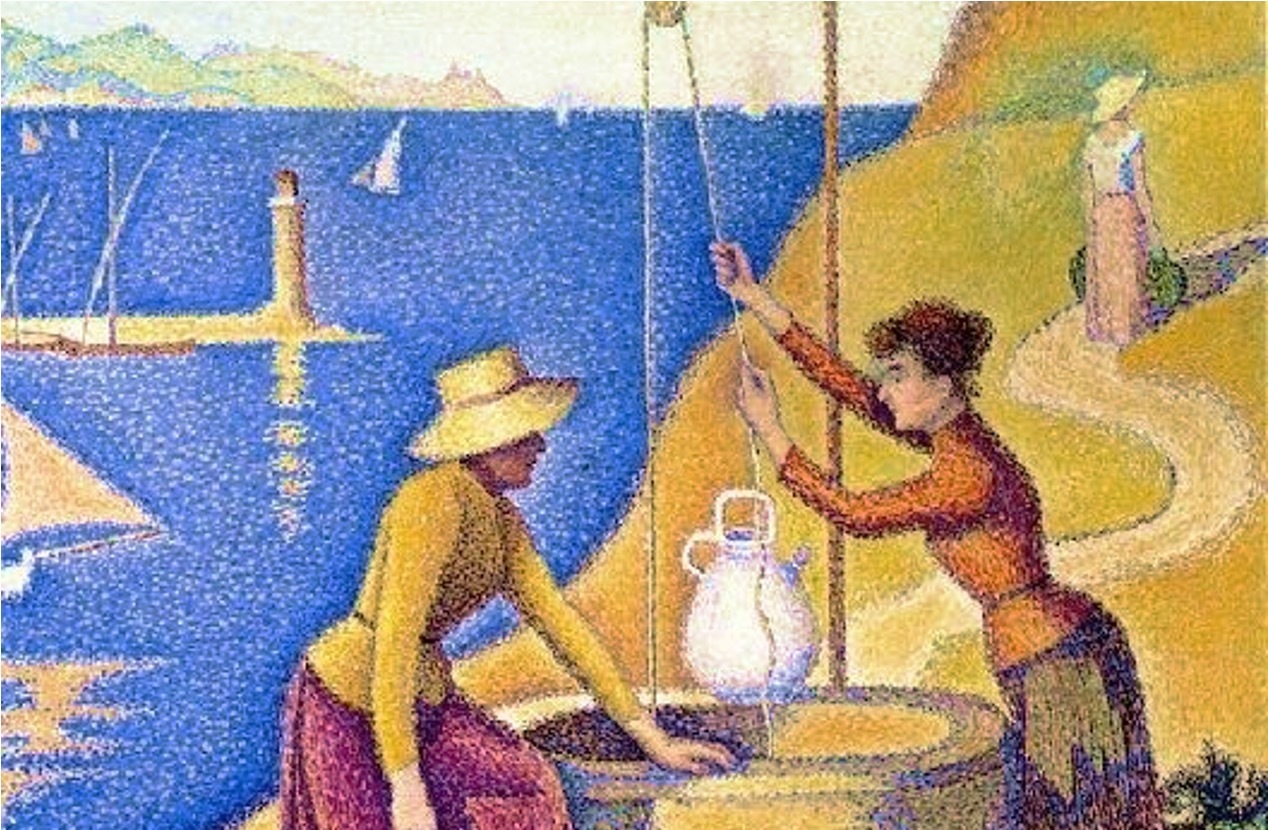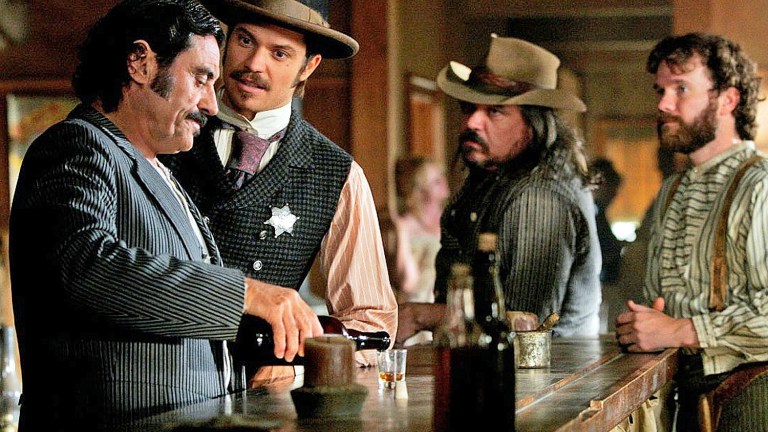Tending to our humanity in a technological age.
A Lyceum Address for Our Times

Lincoln speaks against the mob.
On January 27, 1838, Abraham Lincoln was just 28 years old. Standing before the Young Men’s Lyceum of Springfield, Illinois, he delivered a lecture on the topic of the perpetuation of our political institutions. As Lincoln’s later law partner, William Herndon, recalls, the speech was reprinted in the Sangamon Journal; it began to give the young Lincoln a reputation “beyond the limits of the locality in which he lived.”
In the address, one of Lincoln’s great concerns was how Americans’ relation to our past informs our attitude to ourselves, our posterity, and all mankind. But the occasion of the speech was the outrages committed by mobs in every part of America and the “the increasing disregard for law which pervades the country.”
The last few months in America have brought forth mob rule and pervasive lawlessness all too much like what concerned Lincoln over 180 years ago. And this lawless mob spirit is very much connected to how Americans’ regard for their past should be related to their attitude to themselves in the present, to posterity, and to mankind. Now, Lincoln’s wisdom can benefit us again. Like all his speeches, the Lyceum address richly rewards close reading. Because today we are concerned with our times and not those of 1838, I think Lincoln would forgive me for taking the liberty of adapting his address to the language and circumstances of the present and even leaving aside for the moment some of his most interesting insights. This is what I do below.
The Perpetuation of Our Political Institutions
In the great journal of things happening under the sun, we, the American People, find our account running, under date of the twenty-first century of the Christian era. We find ourselves in the peaceful possession, of the fairest portion of the earth, as regards extent of territory, fertility of soil, and salubrity of climate. We find ourselves under the government of a system of political institutions, conducing more essentially to the ends of civil and religious liberty, than any of which the history of former times tells us.
We, when mounting the stage of existence, found ourselves the legal inheritors of these fundamental blessings. We toiled not in the acquirement or establishment of them—they are a legacy bequeathed us, by a once hardy, brave, and patriotic, but now lamented and departed race of ancestors. Theirs was the task (and nobly they performed it) to possess themselves, and through themselves, us, of this goodly land and to uprear upon its hills and its valleys, a political edifice of liberty and equal rights. It is our task only to keep this land unprofaned by the foot of an invader and to keep these political institutions undecayed by the lapse of time and untorn by usurpation, to the latest generation that fate shall permit the world to know. This task gratitude to our fathers, justice to ourselves, duty to posterity, and love for our species in general, all imperatively require us faithfully to perform.
How then shall we perform this task? At what point shall we expect the approach of danger? By what means shall we fortify against it? Certainly, we have foreign enemies increasingly able to interfere with our liberty and justice and with liberty and justice in the world we must live in. China, as everyone knows, is chief among these. This danger from outside is real and immediate, and we cannot forget it as we focus on the danger within. The danger within is the increasing disregard for law which pervades the country, the growing disposition to substitute the wild and furious passions for the sober judgment of courts and the worse than savage 1619-BLM mobs for legally established law enforcement.
Accounts of outrages committed by these mobs form the every-day news of the times. They have pervaded the country. It would be tedious to recount the horrors of all of them. Anyone can watch hours of video recording the violence, arson, looting, destruction, and murder—all while elected politicians instruct police departments to protect the violent mobs and to withhold protection from public buildings and monuments and law-abiding citizens and their businesses.
It is hard to say which example is most dangerous or most revolting to humanity, but Minneapolis can stand as a fairly complete example of the effects of mob law on the whole country. But, “What has this to do with the perpetuation of our political institutions?” Much. As disgusting, costly, and destructive as these 1619-BLM riots are, their direct consequences could be, comparatively speaking, but a small evil; but much of their danger consists in the proneness of our minds to regard their direct as their only consequences.
Abstractly considered, the burning of Minneapolis, the occupation of Seattle, the billions of dollars of destruction of businesses and monuments across the country—even the killing of innocent men, women, and children—by Black Lives Matter and their allies in these riots, are wounds America can recover from. But the example of these riots, the mob lawlessness they teach us to condone, is a danger to all the liberty and justice our political institutions exist to secure for all of us. When men take it in their heads today to tear down statues, burn businesses, and kill police, they should recollect, that, in the confusion almost always attending such transactions, they will be as likely to tear down a statue of their own hero, burn a business of a neighbor they love, and kill a young boy and girl who is no danger to anyone. They should recollect that, acting upon the example they set, the mob of tomorrow may, and probably will, destroy their homes and kill them and that the police they want to defund, spit on, and kill will have a hard time protecting them, even if they can find it in their duty to do so.
Of course, the innocent, those who have ever set their faces against violations of law in every shape, alike with the guilty, fall victims to the ravages of mob law; and thus it goes on, step by step, till all the walls erected for the defense of the persons and property of individuals, are trodden down, and disregarded. But all this even, is not the full extent of the evil. By such examples, by instances of the rioters, looters, vandals, arsonists, and murderers going unpunished, the lawless in spirit, are encouraged to become lawless in practice; and having been used to no restraint but dread of punishment, they thus become absolutely unrestrained. We have seen this after the Ferguson riots some years ago, and we are already seeing this effect across the country now.
Having ever regarded government as their deadliest bane, the lawless in spirit, who will always be with us, make a jubilee of the suspension of law enforcement; they pray for nothing so much, as the total annihilation of government. This is, in fact, the explicit, publicly stated goal of some allies of BLM and the Democratic Party in these riots.
On the other hand, good men, men who love tranquility, who desire to abide by the laws, and enjoy their benefits, who would gladly spill their blood in the defense of their country, seeing their property destroyed, their families insulted, their lives endangered, their persons injured, and seeing nothing in prospect that forebodes a change for the better, become tired of and disgusted with a government that offers them no protection, and are not much averse to a change in which they imagine they have nothing to lose. Thus, by the operation of this mobocratic spirit, which all can see is now abroad in the land, the strongest bulwark of any government, and particularly of those constituted like ours, may effectually be broken down and destroyed—I mean the attachment of the people.
Whenever this effect shall be produced among us—whenever the vicious portion of our population shall be permitted to gather in bands of hundreds and thousands, and burn churches, destroy and loot businesses, tear down statues, interfere with the lawful movements and activities of citizens, assault our police, take portions of our cities, shoot innocents at pleasure, and with impunity—depend on it, lawful government itself cannot last. By such things, the feelings of the best citizens will become more or less alienated from it; and it will be left without friends, or with too few, and those few too weak, to make their friendship effectual. At such a time and under such circumstances, men of sufficient talent and ambition will not be wanting to seize the opportunity, strike the blow, and overturn that government, which for over two centuries, has been the fondest hope of the lovers of freedom throughout the world.
I know the American People are much attached to their Government; I know they would suffer much for its sake; I know they would endure evils long and patiently, before they would ever think of exchanging it for another. Yet, notwithstanding all this, if the laws be continually despised and disregarded, if their rights to be secure in their persons and property, are held by no better tenure than the caprice of a 1619-BLM mob, the alienation of their affections from the government is the natural consequence; and to that, sooner or later, it must come.
“How can we prevent this?” At least a part of the answer is simple. Let every American, every lover of liberty, every well-wisher to his posterity, swear by the blood of the Revolution, never to violate in the least particular, the laws of the country; and never to tolerate their violation by others. As the patriots of ‘76 did to the support of the Declaration of Independence, so to the support of the Constitution and Laws, let every American pledge his life, his property, and his sacred honor. Let every man remember that to violate the law is to trample on the blood of his father, and to tear the charter of his own and his children’s liberty. Let reverence for the laws be breathed by every American mother to the lisping babe that prattles on her lap; let it be taught in schools, in seminaries, and in colleges in place of the nihilist-anti-American curriculum now taught almost everywhere that is espoused by BLM, the New York Times, and almost all the major foundations and corporations in America. Let reverence for the laws be preached from the pulpit, proclaimed in legislative halls, and enforced in courts of justice. And, in short, let it become the political religion of the nation; and let the old and the young, the rich and the poor, the grave and the gay, of all sexes and tongues, and colors and conditions, sacrifice unceasingly upon its altars.
So long as such a spirit shall universally or even very generally prevail throughout the nation, every effort and attempt to subvert our national freedom will be vain and fruitless.
When I so pressingly urge a strict observance of all the laws, let me not be understood as saying there are no bad laws, nor that grievances may not arise, for the redress of which, no legal provisions have been made. I mean to say no such thing. But I do mean to say, that, although bad laws, if they exist, should be repealed as soon as possible, still while they continue in force, for the sake of example, they should be religiously observed. So also in unprovided cases. If such arise, let proper legal provisions be made for them with the least possible delay; but, till then, let them, if not too intolerable, be borne with. There is no grievance that is a fit object of redress by mob law.
But, it may be asked, why suppose danger to our political institutions? Have we not preserved them for almost two hundred and fifty years? And why may we not for fifty times as long? One reason is that we had Washington, Jefferson, Madison, Adams, Franklin, Lincoln, Frederick Douglass, Teddy Roosevelt, John F. Kennedy, Martin Luther King, and Ronald Reagan. We had the soldiers of the American Revolution, of the Union in the Civil War, World Wars One and Two, and all subsequent wars. But their monuments are to be defaced or destroyed, their statues torn down and their memories erased, to be replaced by monuments and statues to Al Sharpton, Alexandria Ocasio-Cortez, Nikole Hannah-Jones, Ilhan Omar, Keith Ellison, Nancy Pelosi, Colin Kaepernick, Bernie Sanders, Kamala Harris, Joe Biden, and the most eminent among the Never Trumpers.
We hope there is no sufficient reason. We hope all dangers may be overcome; but to conclude that we do not now face an imminent danger to the existence of free government in America, would itself be extremely dangerous. Make no mistake that the leaders of BLM, the 1619 Project, and their allies and supporters in the Democratic Party, who now tear down Washington’s and Lincoln’s statues are ambitious to have statues and monuments raised to themselves, to have their names transferred to counties and cities, and rivers and mountains; and to be revered and sung, and toasted through all time.
It remains only for the leaders of the Republican Party to stand up for the law and for equal justice under the law—to stand up for Washington, Lincoln, King, and the principles of their America—and monuments and statues will rightly be erected in their names. I say this not in a spirit of partisanship, but only because there appears to be no politically organized body in the country right now so well positioned, and yet so hesitant, to assume this noble and urgent task.
The American Mind presents a range of perspectives. Views are writers’ own and do not necessarily represent those of The Claremont Institute.
The American Mind is a publication of the Claremont Institute, a non-profit 501(c)(3) organization, dedicated to restoring the principles of the American Founding to their rightful, preeminent authority in our national life. Interested in supporting our work? Gifts to the Claremont Institute are tax-deductible.


